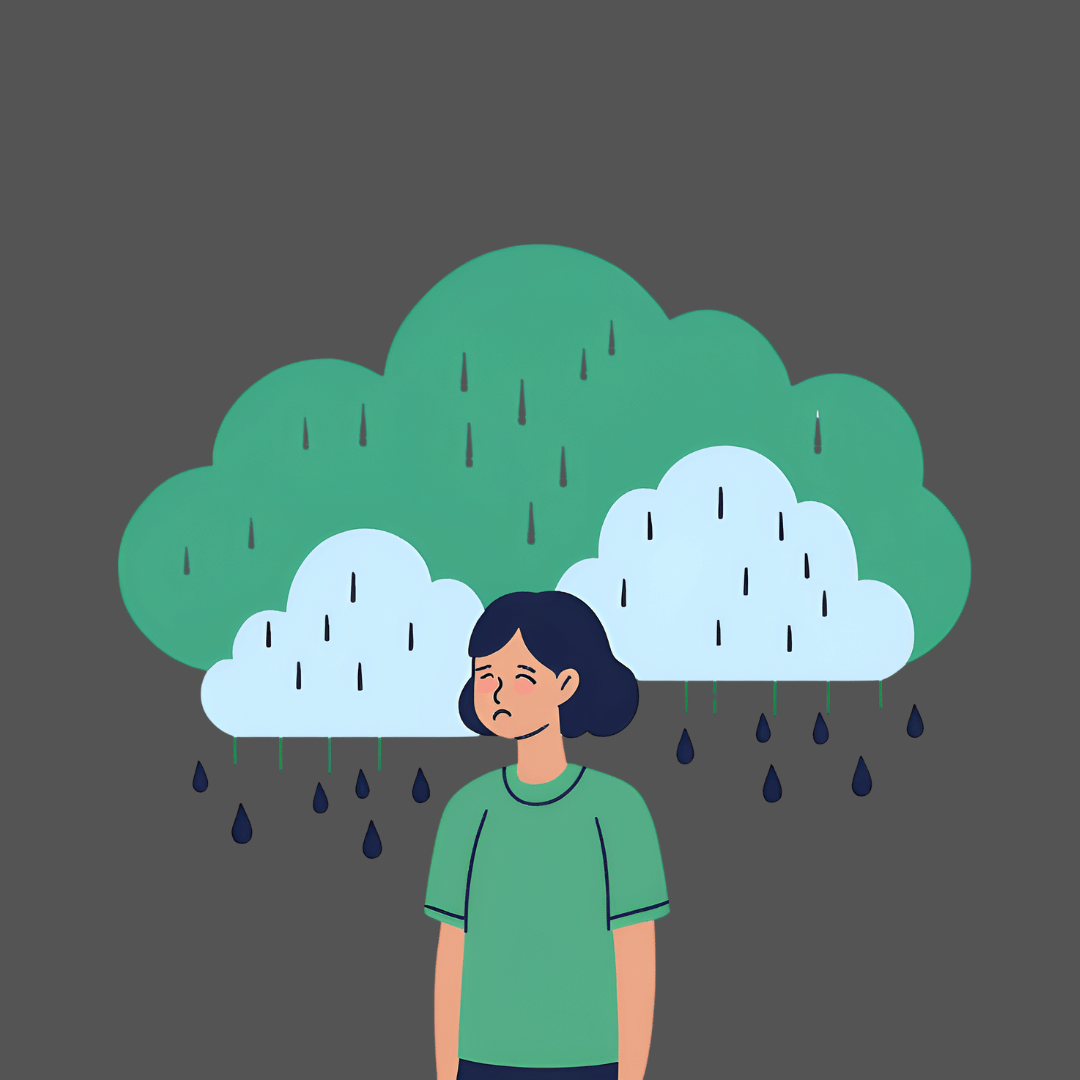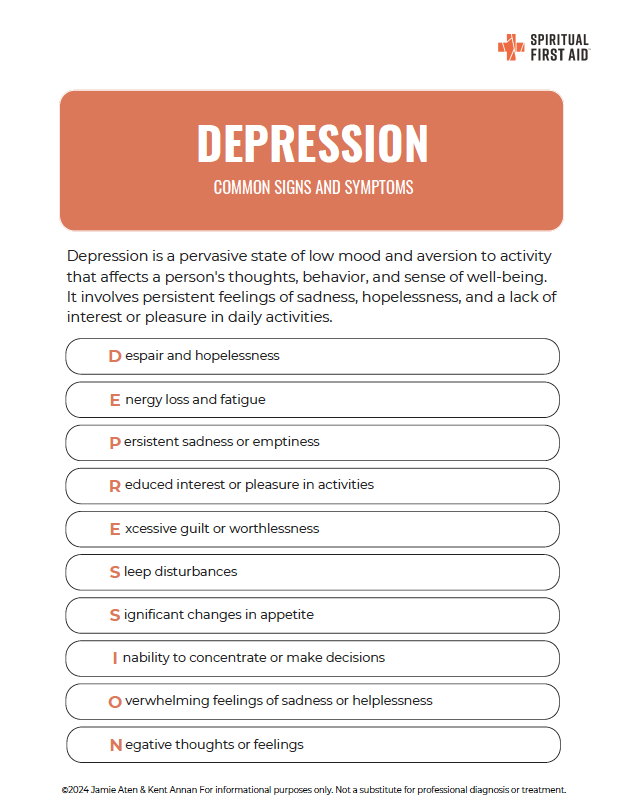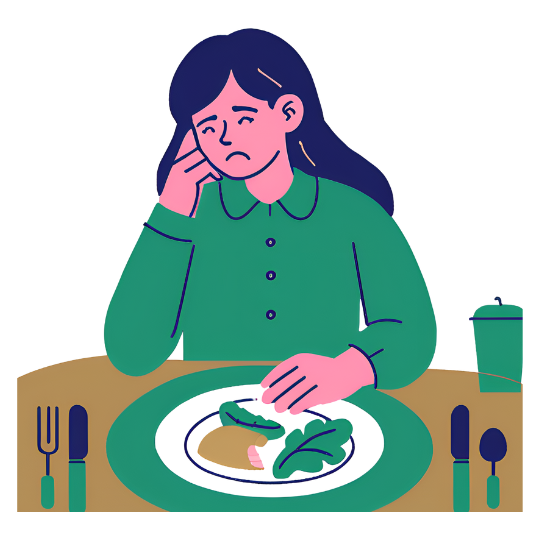
DEPRESSION: AN OVERVIEW OF ITS SYMPTOMS AND FACT SHEET
We all have days when the world feels a little heavy, when getting out of bed seems like a monumental task, and joy feels just out of reach. But when those feelings linger, turning into a persistent cloud that dims even the brightest moments, it could be more than just a bad day. Depression isn’t just sadness—it’s a complex mental health condition that affects millions.
Major Depression and other depressive disorders are characterized by persistent feelings of sadness, hopelessness, and disinterest in activities that were once enjoyable. It encompasses a range of symptoms that can profoundly affect a person’s daily life and overall well-being. Here, we delve into some of the most common symptoms associated with depression, illustrating the multifaceted nature of this condition.
Please note that this should be used as an aide but not as a formal evaluation or diagnosis method. If you suspect that you or a loved one is suffering from depression, please don’t hesitate to reach out to us or to a trusted professional.
Despair and Hopelessness
One of the hallmark symptoms of depression is a pervasive sense of despair and hopelessness. People with depression often feel trapped in their circumstances, unable to see a way out. This bleak outlook on life can make even the simplest tasks feel insurmountable.
Energy Loss and Fatigue
Chronic fatigue and a noticeable loss of energy are common in those suffering from depression. Everyday activities that once seemed easy can become exhausting, and the person may find it difficult to muster the strength to get through the day.
Persistent Sadness or Emptiness
A continuous feeling of sadness or emptiness is another prominent symptom. This isn’t just feeling down for a day or two; it’s a lingering sadness that persists over weeks, months, or even years, often without a clear cause.
Reduced Interest or Pleasure in Activities
Depression often strips away the joy from activities that were once pleasurable to you. This diminished interest in hobbies, socializing, and other activities can lead to withdrawal from friends and family, further exacerbating feelings of isolation.
Excessive Feelings of Guilt or Worthlessness
Feelings of excessive guilt or worthlessness are prevalent among those with depression. Individuals may fixate on past mistakes or perceived faults, blowing them out of proportion and feeling a disproportionate sense of blame or failure.
Sleep Disturbances
Sleep patterns can be significantly disrupted by depression. Some individuals may experience insomnia, struggling to fall or stay asleep, while others might sleep excessively, using sleep as an escape from their depressive thoughts.
Significant Changes in Appetite
Depression can cause significant changes in appetite and weight. Some people may lose their appetite entirely, resulting in weight loss, while others may overeat, seeking comfort in food, leading to weight gain.
Inability to Concentrate or Make Decisions
Cognitive functions are often impaired by depression. Individuals may find it challenging to concentrate, make decisions, or think clearly. This mental fog can interfere with work, school, and other important responsibilities.
Overpowering Sadness or Helplessness
Depression can bring about overwhelming feelings of sadness and helplessness. These emotions can become so intense that they overshadow all other aspects of life, making it hard for the individual to focus on anything else.
Negative Thoughts or Feelings That Persist
Negative thoughts and feelings are pervasive in depression. Individuals may have an ongoing internal dialogue filled with self-criticism, pessimism, and a general sense of negativity about themselves and their future.
Depression is a multifaceted disorder that manifests in a variety of ways, affecting both the mind and body. Understanding these symptoms is crucial in recognizing depression in oneself or others. If you or someone you know is experiencing these symptoms, it’s important to seek professional help. With the right support and treatment, individuals can manage their symptoms and lead fulfilling lives.
Check out the Spiritual First Aid Fact Sheet below regarding depression for quick reference.

Enjoyed our blogpost? Subscribe to our newsletter for more resources on mental health and integrating the Gospel message in your healing journey.
If you found our resources useful, please consider donating to Oak Health Foundation, which is a 501(3)c nonprofit dedicated to providing resources regarding holistic mental healthcare and subsidized treatment for those in need.




